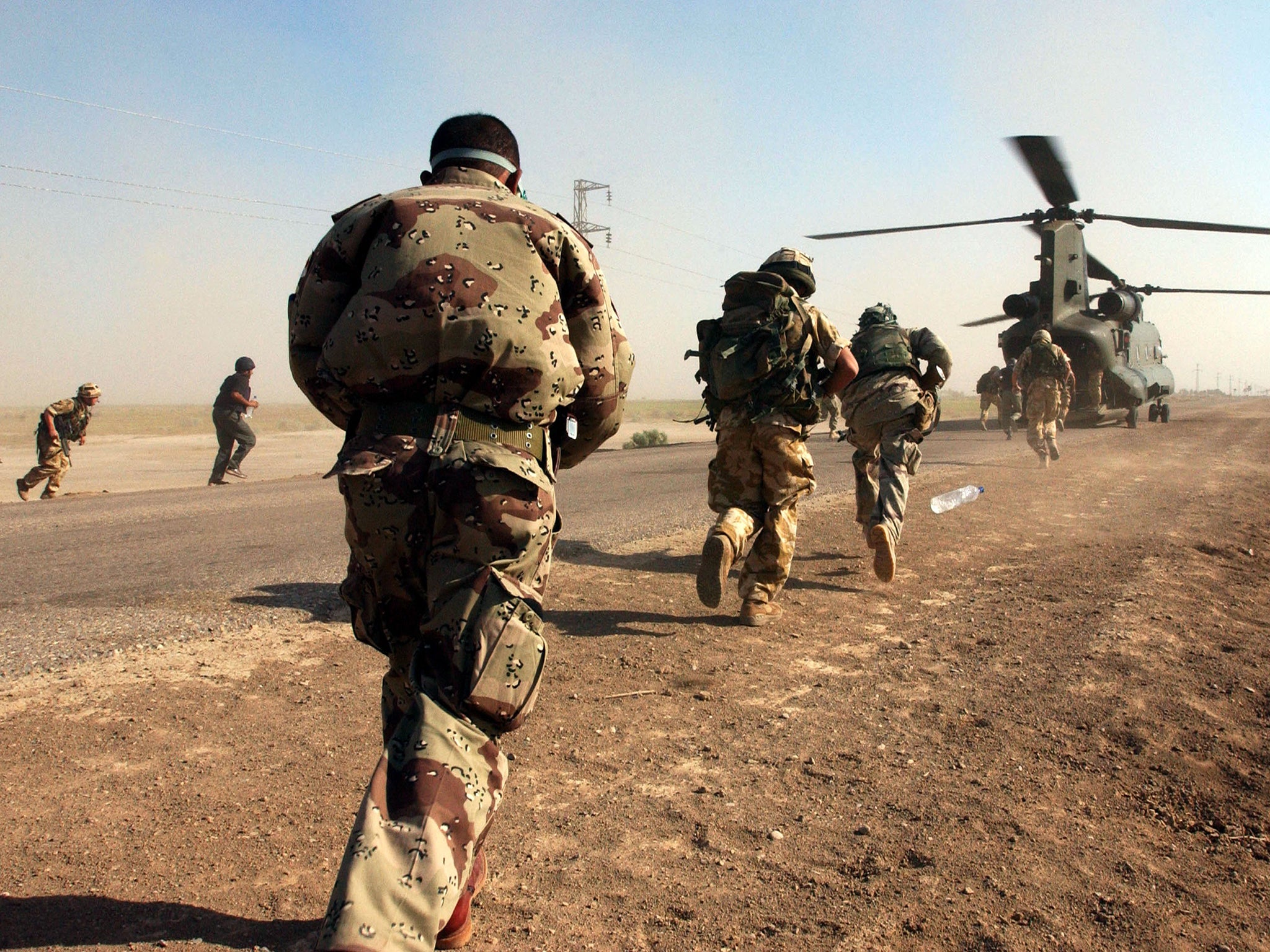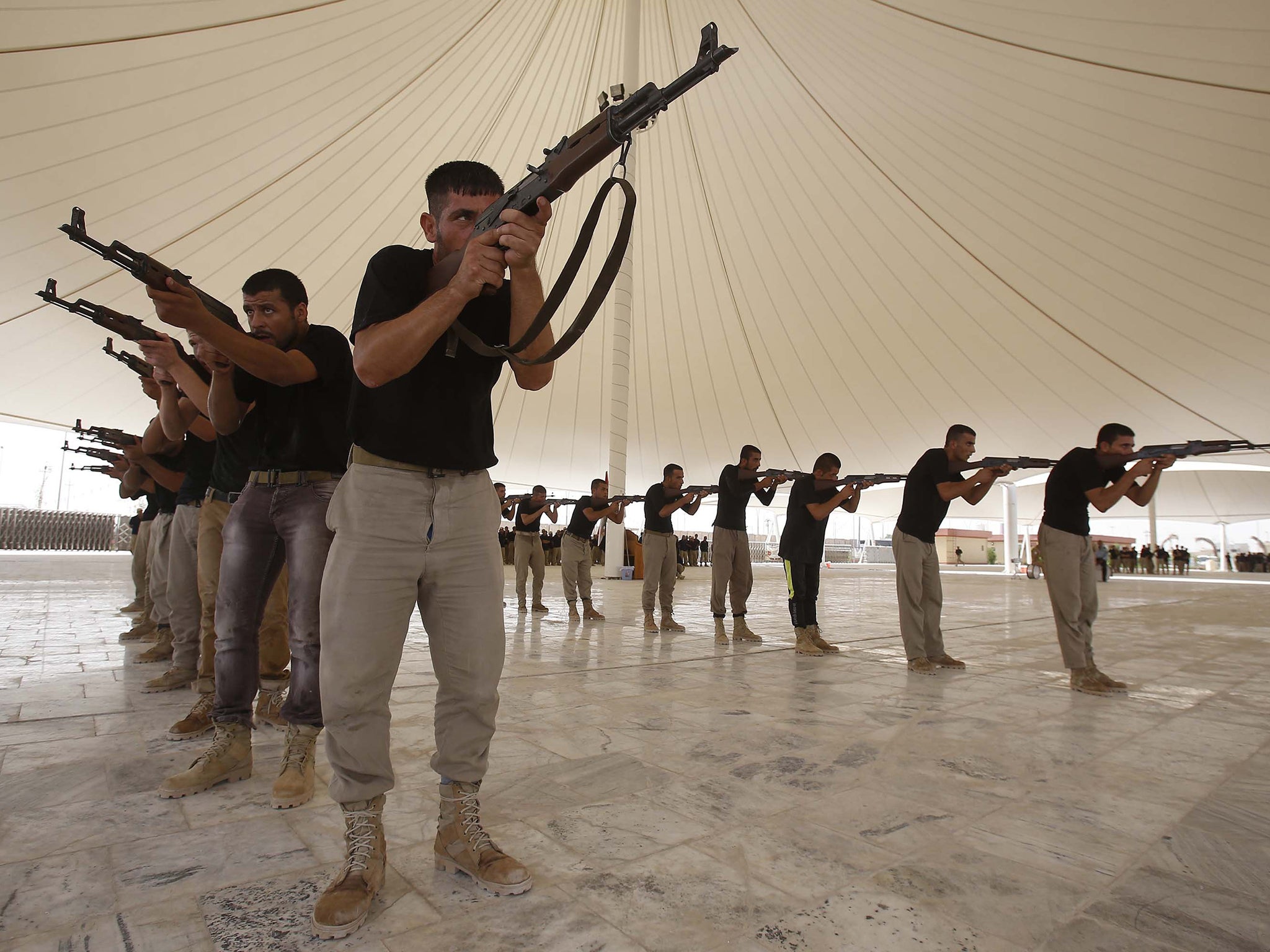War in Iraq: Veterans of last Iraq war uneasy as history repeats itself
The last Gulf War cost nearly 200 British lives. How do veterans of that conflict feel about the prospect of a re-run?

Barely three years after the last British soldier left the southern port of Umm Qasr, following a drawn-out operation that claimed the lives of nearly 200 UK servicemen, our armed forces will once again be fighting in Iraq.
Memories of that conflict are still raw for thousands of veterans. For many hundreds of others, the legacy is even more real – as they struggle to cope with physical injuries and mental traumas sustained in the aftermath of the 2003 invasion.
Britain spent nearly a decade in Iraq after joining the US-led invasion, during which time billions were spent, 179 British soldiers died and hundreds were wounded. Iraqi civilians have paid the biggest price, with more than 120,000 killed since 2003 in a country plagued by sectarian killings and a violent insurgency.
David Cameron’s decision to approve air strikes against Isis – approved by MPs yesterday afternoon – is dividing opinion among those who saw frontline service last time around. While some recoil at the prospect of Britain’s once again embroiling itself in a US-led fight and fear lessons have not been learned, others say military action against those who behead British civilians is necessary and inevitable.
The emerging conflict has not come as a surprise to Byron Kirk, 28, a veteran of both Iraq and Afghanistan. The soldier, who served in the Household Cavalry Regiment, left the army in 2011. “We [Iraq/Afghan veterans] always knew that it would come to this. Organisations like Isis thrive off the ‘divide and conquer’ ethos. They know full well that a full-scale war between Islamic extremists and the civilised world will never happen on Western soil. The only option they have left is to invite the West into an area which they ‘historically’ control,” he said.
“Once there, they use our own rules of engagement against us, our media against us, even our local communities against us.”
Recalling the widespread opposition to a war so unpopular that more than a million people took to the streets of London in the biggest ever protest seen in Britain, he said: “When we were there, we were unable to perform our jobs because protesters and politicians back at home made our lives difficult. When we came home, we were welcomed by empty streets, a lack of jobs and the stigma of being a war veteran.”
Stewart Harris, 30, who served in the Welsh Guards in Iraq in 2005, said he does not oppose air strikes this time. “It’s a bit disappointing that we’re having to go back in again when we thought things were dealt with last time. And it’s a bit of a stain on the lads that we’ve lost and were wounded on past tours. It’s a bit like we failed and now it’s all kicking off again,” he told The Independent.

Mr Harris left the army this month – medically discharged after suffering injuries in Afghanistan. His vehicle was hit by an IED explosion in 2012, which left him with brain damage, and saw him blinded in one eye and deaf in one ear.
“With these beheadings, something has to be done. And it’s not going to stop.” He supports air strikes “as long as they are reaching their real targets”, and said: “I think maybe this time next year maybe we will be back in Basra. Who knows? I’d support it.”
But such involvement would come at a human cost for years afterwards. As well as the physical scars of wounds suffered in war, many veterans from Iraq have had to contend with post-traumatic stress disorder.
Soldiers sent to Iraq were exposed to a cocktail of pesticides, anti-biological warfare vaccines and anti-nerve agent tablets. And thousands returned home reporting symptoms ranging from joint pain and fatigue to breathing and stomach problems, in what became known as Gulf War Syndrome.
“As a Gulf veteran and seriously sick from Gulf War Syndrome, why would anyone want to serve this ungrateful, uncaring government? They stick their noses in where it doesn’t belong, make us all sick, and then just throw us into the shit heap as no longer needed,” said Antony Steventon, 47, a member of the National Gulf Veterans & Families Association.

Another veteran who served in Iraq, Katrina Brown, suffers from systemic sclerosis, an incurable disease she developed after being exposed to depleted uranium in 2003. But the former army nurse does not blame the military: “I signed up ... I was there to fulfil my job and if that was the consequence of doing my job, then that was the consequence of doing my job. You don’t become a firefighter and complain if you get burnt.”
The 31-year-old supports military action: “If I was able to be in a position to go out there myself and help, I most definitely would.”
John McCracken, 44, who served in the King’s Own Scottish Borderers during the first Gulf war and returned to Iraq in 2003, said: “This isn’t just a problem in the Middle East, it’s a huge problem here in the UK. These people haven’t shown any mercy and would never do either, so it’s time to hammer them now.”
Others, like Ian Smith, 58, a former sergeant in the Royal Engineers who served in the first Gulf war, see things very differently.
“The Middle East is a powder keg and if we go in this time, all it means is our short-sighted leaders will be making the same mistakes all over again, and putting our military, and our country, yet again at risk from fundamentalists who we should have finished off years ago. Don’t they ever learn?”
Join our commenting forum
Join thought-provoking conversations, follow other Independent readers and see their replies
Comments
Bookmark popover
Removed from bookmarks